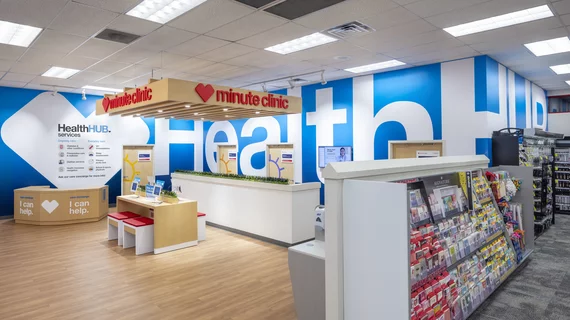CVS Health reports losses after Aetna merger
After acquiring Aetna for nearly $70 billion, CVS Health has taken a financial hit. During the three months ending Dec. 31, 2018, CVS Health lost $421 million in net income, according to its end-of-year financial results.
Upon release of the earnings report on Feb. 20, CVS’ stock price dropped more than 8 percent by end of day trading, hovering above $64 per share.
Looking into 2019, CVS Health projected its full year guidance for operating income in the range of $11.7 billion to $12.1 billion.
“2019 will be a year of transition as we integrate Aetna and focus on key pillars of our growth strategy,” CEO Larry Merlo said in a statement. “We are fully aware of the need to address the impact of certain headwinds that are having a disproportionate impact in 2019 compared to prior years, and importantly, we are taking comprehensive actions to move past them. We understand acutely the importance of balancing near-term execution with longer-term vision, and we are confident that our actions will position us well in 2020 and beyond.”
While net income dropped during the fourth quarter, CVS saw its revenues climb to more than $54 billion, or 5.3 percent compared to the previous year. CVS saw operating income of negative $270 million during the quarter within its retail and long-term care segment, which provides patient care programs, fulfills prescriptions and more, largely due to reimbursement pressures. Pharmacy services segment income rose 2.7 percent from the prior year, at a time when CVS is planning to change its pharmacy benefit manager (PBM) model to ensure 100 percent of rebates are returned to its clients.
So far, two clients are contracted in the new model, according to Merlo.
The PBM plan is a “win-win” for the company, Merlo told analysts on an earnings call Wednesday.
CVS also reported it was on track to meet its synergy target of $750 million in 2020 related to its Aetna deal.
New in-store model
Despite the mixed end-of-year results, CVS executives were still bullish on the company’s future with Aetna under its belt. Its 2019 guidance, which is lower than expected, reflects headwinds from the ongoing integration with Aetna.
The merger with Aetna, which brought together one of the nation’s largest private healthcare insurance providers and a major pharmacy benefit manager and retailer, faced some opposition from industry groups over antitrust and anti-competition concerns. It was cleared by the Department of Justice in October 2018, and the agency recently stated it would uphold that decision after a public comment period on the deal.
With the deal complete, CVS is currently testing its new model concept to deliver more healthcare services within its retail stores. So far, it has established three stores in Houston as its health and wellness hubs concept. According to Merlo, CVS has also expanded its services across the business, including making more than 80 percent of primary care services available at MinuteClinic, he said during the earnings call Wednesday.

